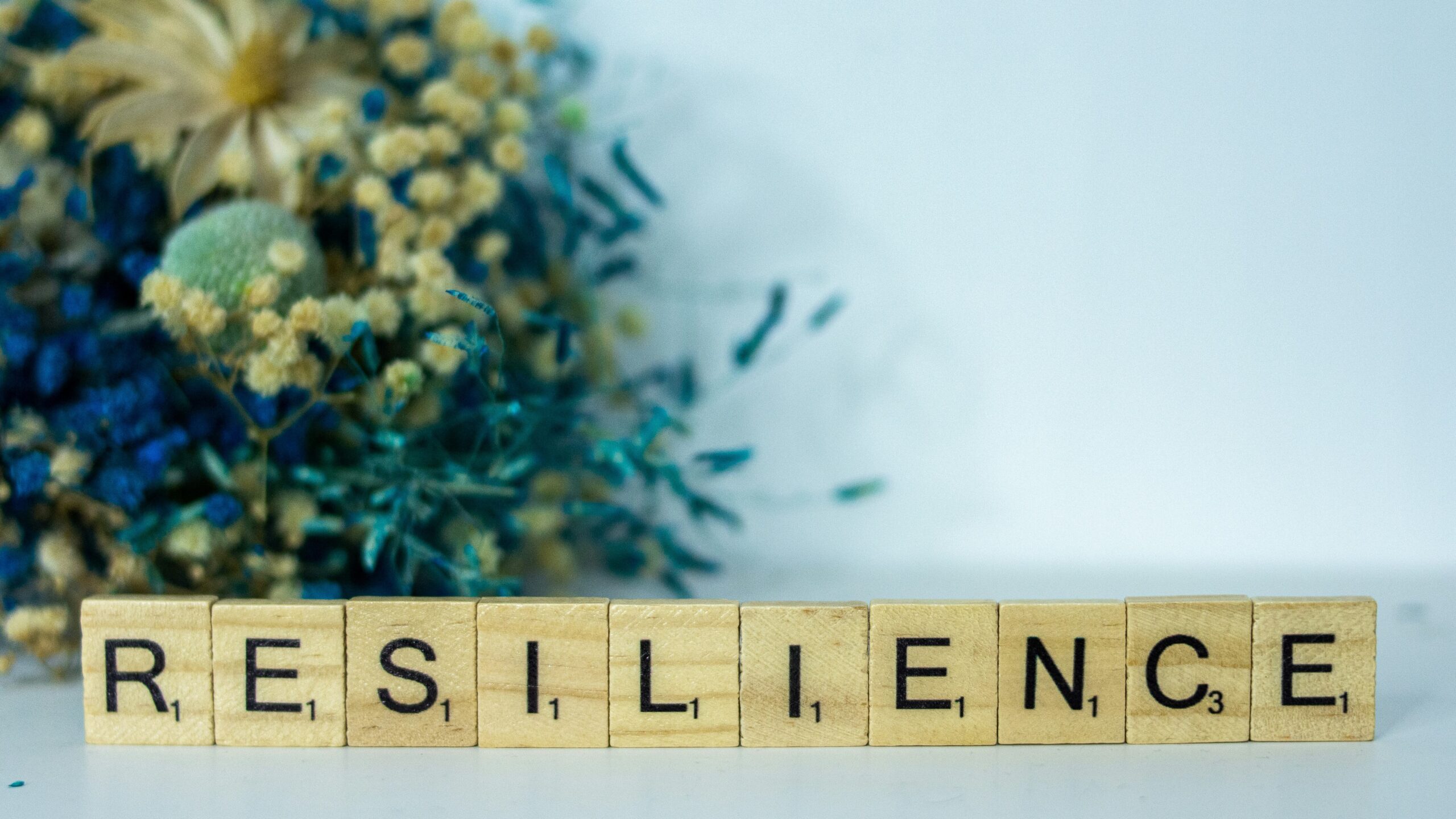So, what’s the deal with youth sports and hitting those academic goals? It might seem like sports are just a fun break from the books, but there’s more to it. In fact, the benefits of youth sports go way beyond the game itself. Many parents worry that playing sports might cut into study time, but the reality? Hitting the field can actually boost those grades. Research shows that kids involved in sports tend to have better academic performance, stronger discipline, and higher focus—key ingredients for school success.
Choosing the right sport for your child is more than just picking a game—it’s about setting them up for success in every area of life. A solid guide for youth sports parents can help navigate everything from practice schedules to balancing homework. And if you’re wondering why kids should play sports, the numbers speak for themselves: young athletes often have a lower school dropout rate, higher test scores, and even better chances of getting into and graduating from college.
So, whether your child is already on the field or you’re trying to choose the right sport for your child, remember—sports aren’t just about the game. They’re about shaping a future of discipline, teamwork, and success both on and off the field.

What Are The Cognitive and Behavioral Benefits of Youth Sports?
Focus
Sports do more than just beef up those biceps or sharpen your footwork. They pack a punch when it comes to brainpower too. Getting active isn’t only about the thrill of the game; it kicks cognitive skills into gear. From better concentration to improved attention span, being on the move seems to boost those brain waves.
Learning
Now, let’s get into what the gurus say. Studies tracking kids from kindergarten to fourth grade show that physical activity can lead to a noticeable improvement in how kids think and learn. It’s like giving your brain a workout without hitting the books. And, as it turns out, practices like shooting hoops or running laps get those mental gears turning, enhancing focus and refreshing your classroom behavior. Read more about studies on physical activity and brain function from the CDC.
Discipline
Think about those moments when discipline and dedication are the only things keeping you from tossing in the towel during a tough practice. The same traits you cultivate on the field or court—discipline, focus, teamwork—aren’t just game winners; they’re key players in academic success as well. The grit you develop facing challenges in sports transfers directly to tackling tough school assignments and exams.
Management
With all the hustle and structure that come with being part of a team, students learn to juggle their schedules like pros. Time management doesn’t stop at practice; it smooths the road for handling homework and assignments too. Sure, it’s not just about how many goals or points you score, but how good you get at managing your time and responsibilities, keeping your eyes on the prize—academic excellence.

How Do the Benefits of Youth Sports Lead to Higher Education?
Opportunity
When it comes to heading to college, athletes often have a leg up. All that time spent on the playing field can actually pave the way to higher education. For many students, being part of a sports team fuels a desire to not only get to college but to succeed there.
Motivation
Here’s what’s interesting. Statistics show that high school athletes are more likely to enroll in college compared to their non-athlete peers. Playing sports shapes a student’s mindset towards setting and achieving higher goals. It’s like pushing past your limits during training and seeing it pay off when you finally crush your personal best. That dedication transfers to the classroom.
Resilience
Sports also instill a sense of resilience and determination. These traits help students face the academic challenges that come with higher education. It’s no surprise then that athletes are often more prepared to stick it out through college, seeing it as another competition where quitting isn’t an option. Imagine bringing that same drive to your studies, pushing through late-night study sessions like you push through tough games.
Leadership
And for the team leaders—team captains, MVPs—their higher success rates in school are even more prominent. These roles develop advanced leadership skills early, which are tremendous assets in both academic and future career pursuits. It’s all about transferring those winning strategies from the court to the classroom.

How Do the Benefits of Youth Sports Impact Career and Personal Development?
Career Achievements
Besides boosting school success, sports can kick-start careers and shape personal skills that are essential in the workplace. Playing youth sports doesn’t just stay on the field; it carries over into career achievements where former athletes often shine.
Success
A dive into the world of career success reveals that a large portion of female executives played sports growing up. We’re talking over 90%! That’s a clear nod to how team sports can nurture skills beyond dribbling or passing. Those seemingly routine practices and games end up fostering leadership, grit, and determination—the same traits that help climb the corporate ladder.
Soft Skills
Ever wondered about those skills you pick up on the field? Think teamwork, goal setting, resilience. These are the soft skills that employers drool over, and former athletes tend to have an edge here. Navigating office relationships, handling feedback, and achieving goals? Those are just another set of hurdles that student-athletes have been conditioned to handle with finesse.
Productivity
Research also suggests that former athletes not only adapt well but are also more productive at work. They bring in discipline and a winning attitude that drive company success. It’s like their brains have muscle memory for overcoming challenges and staying committed—skills that translate well into any career path you might think of. And that payoff includes financial rewards too. Former athletes report earning up to 7%–8% more annually. Talk about a win for sticking through those grueling training sessions!
Balance
Being active in sports teaches balance, and these lessons last far beyond your school years. It prepares you for real-life teamwork, time management, and working towards your goals. So next time you pull on your jersey or lace up those cleats, remember, the skills you’re building are not just for the game—they’re for life.



This article shows that youth sports do much more than just keep kids active. Beyond the obvious physical benefits, it highlights how participating in sports can boost academic performance by enhancing focus, discipline, and time management skills. I was particularly impressed by how the article connects the dots between improved cognitive function, better behavior, and even higher chances of pursuing higher education. It’s a compelling reminder that the lessons learned on the field—teamwork, resilience, and goal-setting—can translate into success in the classroom and later in life. I will say, it makes a strong case for supporting youth sports as a vital part of a child’s development.
Great Job!
Thank you so much for your thoughtful comment! ???? I’m really glad you found the article impactful and that it resonated with you. It’s amazing how the benefits of youth sports stretch far beyond physical fitness, shaping kids in ways that can last a lifetime. I appreciate you highlighting how teamwork, resilience, and goal-setting play a huge role in success both on and off the field. Your feedback really encourages me to keep sharing the importance of supporting youth sports as part of a child’s overall growth. Thanks again for reading and sharing your thoughts! ????
Youth sports don’t just build physical strength, they also strengthen academic skills. The discipline, time management, and focus required in sports often translate to better performance in the classroom.
When I was a teacher’s intern, I saw firsthand how kids who play sports tend to develop strong study habits and a sense of responsibility. Do you think schools should encourage more student-athlete programs to reinforce these benefits?
I completely agree with you! The skills developed in youth sports—like discipline, time management, and focus—can absolutely translate into academic success. It’s exciting to see how these habits can build responsibility and strong study routines.
As for schools encouraging more student-athlete programs, I think it’s a great idea. Offering opportunities for students to engage in sports can complement their academic growth and help them develop a well-rounded skill set. When students experience the structure and accountability that comes with sports, it can also help them approach their studies with more dedication. Schools fostering that balance could have a significant positive impact on students’ overall development! What’s your take on how schools can best integrate these programs?
This is such an insightful breakdown of how youth sports shape not only academic performance but also long-term success! The connection between discipline, resilience, and leadership on the field translating into the classroom and even careers is truly fascinating.
I love the point about time management—balancing sports and school can be a challenge, but it’s a skill that benefits kids for life. Did you come across any specific studies that compare academic success rates between student-athletes and non-athletes? Also, what advice would you give to parents who are hesitant to enroll their children in sports due to concerns about injury or time constraints?
Great read! Looking forward to your thoughts.
Thank you for your thoughtful comment! I’m glad you found the breakdown insightful. The connection between sports, academics, and long-term success is truly fascinating—it’s amazing how these skills carry over into every area of life.
There have been several studies showing a positive correlation between student-athletes and academic success. Research suggests that student-athletes often have higher GPAs, better attendance rates, and lower dropout rates compared to non-athletes. One study from the Journal of Youth and Adolescence found that participation in organized sports was linked to improved cognitive skills and academic motivation.
For parents hesitant about enrolling their kids in sports due to injury concerns, I’d recommend starting with a sport that matches their child’s interests and physical comfort level. Proper training, warm-ups, and technique can significantly reduce the risk of injuries. As for time constraints, it’s definitely a challenge, but the time management skills kids develop through sports can actually help them in school and beyond. Finding the right balance and prioritizing academics alongside athletics is key!
Thanks again for your great questions—I appreciate the discussion! ⚽????????
I love how the article emphasizes the positive impact on time management, teaching kids to balance sports and schoolwork effectively. The link between sports participation and higher education success is powerful, showing how sports can motivate students to aim higher and build resilience. It’s incredible to see how involvement in sports can boost cognitive skills, focus, and discipline traits that are essential for success in the classroom
Thanks, Ravin! I appreciate your insight. The way sports help kids develop time management and resilience is truly powerful—it’s amazing how these skills translate into academic and lifelong success. The cognitive benefits, like improved focus and discipline, are such a game-changer for students. Glad you found the article valuable! ⚽????????
Youth sports play a vital role in shaping a child’s academic success, personal growth, and future career prospects. This post highlights how athletics go beyond the field, instilling essential skills like discipline, time management, and resilience that translate directly into the classroom and workplace. Research-backed evidence proves that student-athletes often achieve higher test scores, lower dropout rates, and increased college enrollment. Beyond academics, sports teach valuable soft skills such as teamwork, leadership, and perseverance—traits highly sought after in professional settings. The ability to juggle schoolwork and sports fosters strong organizational skills, preparing young athletes for the demands of higher education and future careers. Additionally, the connection between athletics and long-term success is evident, with many industry leaders having a background in sports. Ultimately, engaging in youth sports is not just about competition; it’s about developing a mindset of hard work, commitment, and excellence that benefits all aspects of life.
Thanks for your thoughtful comment! You hit the nail on the head—youth sports shape kids far beyond the field. The discipline, resilience, and teamwork they develop don’t just help them in the game but also in the classroom and later in their careers. It’s amazing to see how the structure of sports equips kids with real-world skills that set them up for success. The research backing this up makes it even more compelling! Thanks for sharing your insight! ⚽????⚾
The emphasis on developing focus, discipline, and time management skills through sports participation highlights the holistic benefits for young athletes. Notably, the correlation between athletic involvement and higher college enrollment rates underscores the long-term educational advantages. Moreover, developing leadership skills within sports teams effectively translates into academic and career success. Your piece effectively illustrates how engaging in youth sports can lay a strong foundation for educational attainment and personal growth.
Thank you so much for your thoughtful feedback! ???? I’m glad the article resonated with you. You’re absolutely right—sports offer so many holistic benefits, not just in the short term but with long-lasting effects like higher college enrollment rates and career success. The leadership skills developed on sports teams definitely play a crucial role in shaping well-rounded individuals. I’m so glad the piece highlighted these important connections and that you found it helpful in illustrating the broader impact of youth sports on education and personal growth. Thanks again for sharing your perspective! ????
HI Zachary,
This is a great article. There is no doubt that team sports have so many benefits other than the physical activity, which you have outlined very well. Being physically active is important at all ages. What do you suggest when a child really isn’t interested in team sports? My son-in-law tried to interest our grandson in playing sports, especially hockey when he was very young. After a couple years, it was clear the boy just wasn’t interested. Early in high school, he tried playing Lacrosse, but that didn’t work out. He is really interested in physical fitness and even working with a trainer. He enjoys obstacle course type competitions and CrossFit.
Should parents insist on some type of team sport as children are growing up?
– Scott
Hi Scott,
Thanks so much for your thoughtful comment! ???? You raise an excellent point about children who may not be interested in traditional team sports. Every child is unique, and it’s important to recognize their individual interests and strengths. It sounds like your grandson has found a passion in physical fitness and activities like obstacle course competitions and CrossFit, which are fantastic for building strength, endurance, and discipline.
I wouldn’t suggest that parents should insist on team sports if a child isn’t interested—especially if they’re engaging in other forms of physical activity that keep them active and healthy. The key is to encourage physical activity in a way that aligns with their interests, whether that’s individual sports, fitness challenges, or something else entirely. Sometimes, it’s about finding the right fit for each child and allowing them to explore different options until they find something they truly enjoy.
Thanks again for sharing your story—every child’s journey is different, and it’s great that you’re supporting your grandson in his fitness goals! ????
Best,
Zac
-Good article about the benefits of sports for young kids in school, $$
-I think that there can be a good thing about playing sports while in school; it is true that those that play sports might be among the most well-rounded in terms of perhaps playing varsity or even being on an academic team while in school and whatnot.
-People that play sports might even be captain(s) of their team and leaders in the classroom, too; things to look for and after.
-Good read; will pop in again sometime soon.
-Best to you,
ALEJANDRO G.
Thanks so much for your thoughtful comment, Alejandro! ???? I really appreciate you taking the time to share your perspective. You’re absolutely right—sports can help young kids develop leadership skills, both on the field and in the classroom. Being a captain or a leader in any capacity definitely translates into stronger academic and personal growth. I’m glad you enjoyed the read, and I’d love for you to pop in again anytime! Best to you as well! ????????
-Zac
Thank you for shedding light on this important aspect of youth development, Zachary! As a psychologist and wellness specialist, I have observed firsthand how participation in sports can enhance cognitive functions, discipline, and time management skills in children. Your insights align with research indicating that young athletes often achieve higher academic performance and exhibit improved classroom behavior. This article is a valuable resource for parents and educators.
Thank you so much for your kind words and for sharing your professional insight! ???? It’s great to hear that my observations align with your experience as a psychologist and wellness specialist. The connection between sports and cognitive functions, discipline, and time management is so crucial for young people, and it’s encouraging to see more professionals recognizing these benefits. I’m glad you found the article valuable, and I hope it continues to be a helpful resource for parents and educators alike. Thanks again for your thoughtful feedback! ????
“Such a great read! As someone who grew up playing sports, I can definitely attest to how beneficial they are for both academic and personal development. The focus, discipline, and time management skills learned on the field translate directly into the classroom. I’ve seen this firsthand in my own life and also with friends who’ve excelled both academically and in their careers because of the lessons learned through sports. It’s encouraging to see more research backing up these benefits. Schools should absolutely continue to encourage sports programs, as they not only help with physical health but also shape well-rounded, disciplined students. Definitely a reminder that youth sports are so much more than just a fun activity!”
Thanks so much for your thoughtful comment! ???? It’s awesome to hear your personal experience and how sports have impacted both your academic and personal development. You’re absolutely right—skills like focus, discipline, and time management learned through sports can have a huge impact in the classroom and beyond. It’s great that more research is backing up these benefits, and I couldn’t agree more that schools should continue to support sports programs for their role in shaping well-rounded students. Thanks for sharing your perspective—it’s such an encouragement! ????